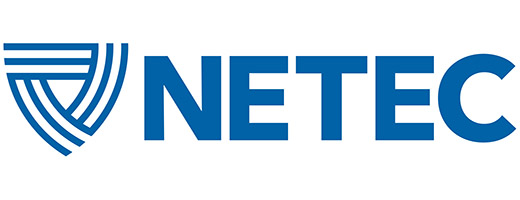A $12 million grant awarded in 2015 to establish the National Ebola Training and Education Center (NETEC) has been doubled to $24 million to allow for a variety of expanded services, including creation of a special pathogens research network.
The grant awarded to the co-leads of NETEC – Emory University in Atlanta, the University of Nebraska Medical Center in Omaha (UNMC) and NYC Health + Hospitals/Bellevue in New York City – will run in tandem with the original five-year grant. Funding is provided by the Centers for Disease Control and Prevention (CDC) and the Office of the Assistant Secretary for Preparedness and Response (ASPR) through the U.S. Department of Health and Human Services.
The supplemental $12 million funding will allow the three partner institutions to perform additional site visits, conduct more education and training courses, as well as build the special pathogens research network. This network will include the 10 regional Ebola treatment centers located throughout the U.S. that are specially trained and equipped to handle patients with highly infectious diseases.
"NETEC's mission is to increase the capability of the U.S. public health and health care systems to safely and effectively manage individuals with suspected and confirmed special pathogens," says Bruce Ribner, MD, principal investigator of NETEC and medical director of the Serious Communicable Diseases Unit at Emory University Hospital.
"This additional grant money will help us educate and train more health care workers, as well as develop a national research consortium with other centers across the country. We are excited to expand our knowledge base to better prepare the public health and health care infrastructures for the next outbreak."
Ribner says the grant also will expand preparedness training and site visits of health care providers and facilities on strategies to manage Ebola and other emerging contagious infectious diseases.
The collaborators say the research infrastructure should be complete by this summer. Then research projects will be more efficient and less expensive to conduct because of the shared resources.
"It's not 'if,' but 'when,' because it's only a matter of time before another outbreak like Ebola happens," says Chris Kratochvil, MD, co-principal investigator of NETEC for UNMC, associate vice chancellor for clinical research and vice president for research at Nebraska Medicine, UNMC's clinical partner. "When Ebola hit, UNMC, Emory and other institutions were all independently trying to determine the best drug for treatment. It was inefficient – we weren't using the same protocols, and there was no consistency to the research. Now we can all collaborate to develop medical counter measures together."
"With the additional funding, NETEC will be able to train more health care providers across the US," says Laura Evans, MD, co-principal investigator of NETEC for NYC Health + Hospitals/Bellevue and medical director of Critical Care and the Special Pathogens Program at Bellevue. "NETEC will expand its capabilities in helping health care facilities and coalitions test their preparations to transport and care for patients infected with Ebola and other special pathogens through hands-on drills and exercises."
Since December 2014, the three institutions have trained more than 840 health care workers on all aspects of infection control and patient care for individuals with Ebola virus disease.

